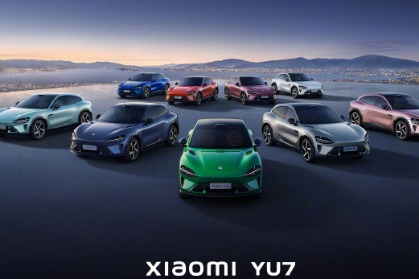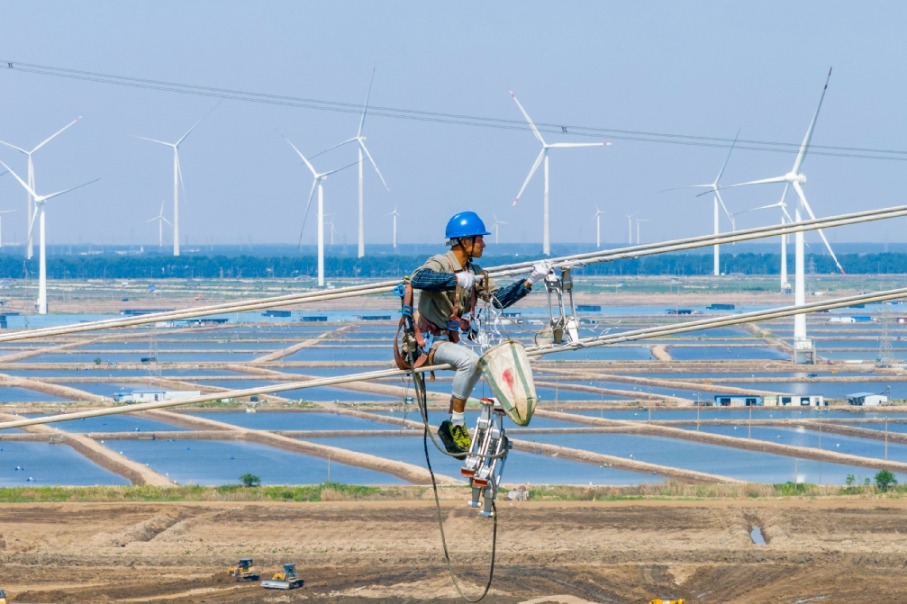Oiling the wheels of African industrialization

Western claims of exploitation are wrong - China has helped nations take an important step toward future prosperity
China and African countries are continuing to develop cooperation in the oil industry. The momentum of development has been good in recent years.
The history of Sino-African oil cooperation can be traced back to the 1990s. In 1993, China became a net oil importer, after previously being an exporting country, because domestic resources could no longer satisfy the nation's demands. China started to import crude oil from African countries in 1992. In 1995, it reached an agreement with Sudan and began exploiting that country's oil reserves. Between 2000 and 2009, the average annual growth of China's oil imports from Africa was 42.2 percent. In recent years, imports from Africa accounted for about 30 percent of China's total oil imports. Africa has become China's second-largest source of crude oil.
The rapid development of China-Africa oil cooperation has caused panic among some Western countries. Claims of "plundering resources" and "new colonialism" began to appear. However, all of these were unfounded.
China has had clear and consistent principles and policies on developing relations with African countries since the 1960s. There is a focus on equality and mutual benefit, respect for each other, joint development and noninterference in internal affairs.

As a partner in trade and commerce, China has always kept in mind the principles of market economics and respect for fair trade. It has never tried to gain resources or products from Africa - including oil - through unequal means. Instead, China's demand for crude oil from the continent has broken the Western countries' monopoly, giving African nations more bargaining power and choices, and thus more profit.
For China, cooperating with African countries gives it a source of the oil it needs. China has become the word's largest crude oil importer and the second-largest oil consumer. Its rapid economic growth, but slower increase in domestic oil production, caused it to be highly dependent on imported fuel. It needed to import 65 percent of its oil from other countries. Developing good bilateral ties with African countries, a rich source of crude oil, and promoting further cooperation will help it diversify its sources and maintain energy security.
Africa's oil resources are rich, but its level of oil consumption is very low. Oil consumption within Africa accounted for only about 30 percent of its output, the rest being for export. Of its total oil exports, crude oil accounted for as much as 90.5 percent, according to 2012 data. Petroleum exports accounted for less than 10 percent of the continent's oil output. This indicates that crude oil exports were the mainstay of African oil trade. The reason for this is that development of Africa's refining industry has been backward. Its oil processing capacity was at the world's lowest level.
Western countries can be blamed for this situation. With a desire to grab African resources and keep away local competitors, Western companies, which invested most of their capital in oil exploration and exploitation, did not care about developing local oil processing industries, including petrochemicals and petroleum refining.
China, on the other hand, adopted the "Teach One to Fish" principle in the process of energy cooperation with African countries. It has helped them to cultivate many petroleum technologists and build an integrated oil industry chain. For example, the petrochemical industry in Sudan has witnessed rapid development since 1990.
The Sino-Chad N'djamena Refinery project, jointly built by China National Petroleum Corp and the Republic of Chad, has helped Chad transform from being an importer to a refined oil exporter. The annual output of its refinery can reach 1 million metric tons.
Another example is Niger. The Agadem Oil Integration project, also created with the cooperation of CNPC, can produce 1 million tons of refined oil each year, making Niger an oil producer and refined oil exporter.
For a long time, the African industrial level has been extremely backward. As a result, many African countries could only rely on sales of primary commodities, such as agricultural products and crude oil, in exchange for foreign currency. Their people have mostly depended on imported industrial products. The price of the primary commodities has fluctuated wildly in international markets. African countries hope industrialization can help them get out of their difficulties.
Chinese people have taken many effective steps to support Africa and help it develop its own industrial system, allowing its countries to break through the development bottleneck toward achieving economically independent and sustainable development.
Historical experience shows there is an inseparable link between oil and industrialization. The higher the level of a region's industrialization - meaning the higher per capita GDP - the greater the consumption of oil and dependence on oil. It can be said that oil is the prerequisite and basis for the realization of industrialization. As a result, China has continuously strengthened its economic and technical assistance to African countries to help them improve their oil exploration and exploitation levels and to improve their oil processing capacity.
With the help of China, the oil industry chain of African countries has been continuously improved. The continent's petroleum production has gradually become self-sufficient, and countries that originally imported refined oil have become oil-exporting countries.
With continuous support from China, African countries have an opportunity to get out of a difficult situation of processing and exporting primary products and importing manufactured goods. They can gradually break through the development bottlenecks in the fields of capital, technology and talent, and finally achieve the goal of industrialization.
In past decades, Chinese made great efforts to help their African friends improve their status in international trade. They have also helped African people to build their own infrastructures, implement livelihood projects, train local technical personnel and improve the level of industrialization.
What Chinese have done has been seen and remembered by African people. Western arguments about "plundering African resources" and "neo-colonialism" are groundless and unreasonable.
The author is director of The Center of Africa Studies of China Foreign Affairs University. The views do not necessarily reflect those of China Daily.
(China Daily European Weekly 10/06/2017 page8)
Today's Top News
- Expert debunks Lai's 'four elements' argument for Taiwan's so-called statehood
- China opposes any tariff deal made at its expense: commerce ministry
- Nepal's hydropower a climate change solution
- UN Charter still guiding compass of humankind
- Leaders pledge to strengthen Sino-Senegalese relations
- China, Ecuador to support each other's core interests































